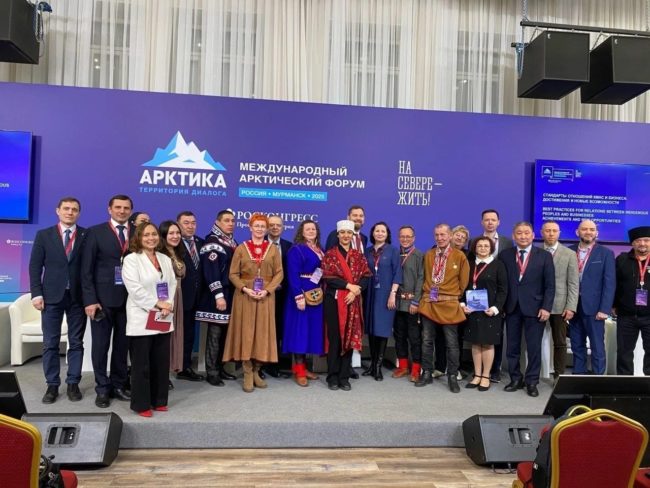ADC “Memorial” supports the position of Dmitry Berezhkov, editor of the “Indigenous Russia” portal, and publishes his article criticizing the thematic report of the UN on the impact of armed conflicts on Indigenous peoples’ rights:
In February 2025, the UN Permanent Forum on Indigenous Issues presented its thematic report “Impact of colonization and armed conflicts on Indigenous Peoples’ rights: the imperative of peacebuilding” (E/C.19/2025/7). The document is presented as a study of the impact of colonialism and armed conflicts on Indigenous Peoples. However, a closer look reveals that the largest armed conflict in Europe since World War II – Russia’s war against Ukraine – is virtually absent from the report.
It is also troubling that, following a lengthy and overdrawn preamble spanning several pages, the substantive part of the report does not begin with an analysis of the real consequences of modern wars for Indigenous Peoples. Instead, it opens with a discussion of the negative effects of Western sanctions on Iran and Bolivia. It gives the impression that, for the authors – representatives of Iran (Hanieh Moghani), Australia (Hannah McGlade), and the United States (Geoffrey Roth) – this is the central issue within the broader discussion of colonialism and conflict.
For us – representatives of Russia’s Indigenous Peoples – this rhetoric sounds all too familiar. For years, RAIPON, the official Russian organization of Indigenous Peoples that supported the invasion of Ukraine and is entirely controlled by the Kremlin, has been actively speaking out against sanctions in all UN venues. RAIPON is used by Russian authorities in international bodies as a tool of soft power and to justify both internal and external policies, including the militarization of the Arctic and the violation of the rights of Indigenous Peoples themselves.
It is no surprise that one of the report’s authors – the Iranian representative Hanieh Moghani – has, in recent years, regularly participated in Kremlin-sponsored events on Indigenous rights, including Arctic forums. These are the kinds of events where the Kremlin’s narrative dominates, promoting ideas such as the war in Ukraine being merely a “territorial dispute and political rivalry,” and that sanctions against states systematically violating human rights are one of the greatest threats to Indigenous Peoples. When such narratives are reflected in official UN reports, it indicates a serious crisis of representation and independence in international Indigenous rights mechanisms.

Meanwhile, the only mention of Ukraine is found in paragraph 69 and is limited to a single sentence:
“As a result of the geopolitical struggle in Ukraine, suffering has increased for Indigenous minorities such as the Crimean Tatars, who have long faced persecution and are now caught in the crossfire of parties involved in territorial disputes and political rivalries.”
Given the scale of the war and its consequences for Indigenous Peoples in both Ukraine and Russia, such a statement is not just understated – it is deliberately depersonalized. It omits any mention of:
- the thousands of Indigenous people from both Ukraine and Russia who have died;
- the forced mobilization of Indigenous minorities;
- the persecution of Crimean Tatars in occupied Crimea;
- the systemic militarization of Arctic territories inhabited by Indigenous Peoples;
- the destruction of Indigenous communities in Crimea and local ecosystems due to the ongoing hostilities.
Moreover, the very use of the term “crossfire” creates a false equivalence between the aggressor and the victim, absolving the Russian Federation of responsibility for starting and escalating the war. The vague terminology used by the authors, such as “geopolitical struggle” and “territorial disputes,” replaces legally precise terms of international law: armed aggression, occupation, ethnic repression.
It is especially paradoxical that the Vietnam War – which ended half a century ago – receives more attention in the report than events currently unfolding and affecting the lives of thousands of Indigenous people in Ukraine and Russia. This imbalance is difficult to explain as anything other than political self-censorship or the influence of states interested in silencing the consequences of war.
Unfortunately, this is not an isolated case. A similar tone was present in the previous report of the UN Expert Mechanism on the Rights of Indigenous Peoples (A/HRC/EMRIP/2023/2), which also ignored independent data on mobilization, violence, propaganda, and discrimination against Indigenous Peoples during the war. That report, too, was prepared with the involvement of Kremlin-aligned agents.
What can be said? Formally, the war in Ukraine is mentioned in the Permanent Forum’s report. But in substance – it is absent. Instead of analysis – euphemisms. Instead of truth – neutrality. Indigenous Peoples, caught in the epicenter of a historic tragedy, are mentioned in passing. For a document claiming global relevance and urgency, this is not merely an oversight. It is a failure of responsibility.
Dmitry Berezhkov, editor of “Indigenous Russia”,
March 28, 2025









 Feedback
Feedback